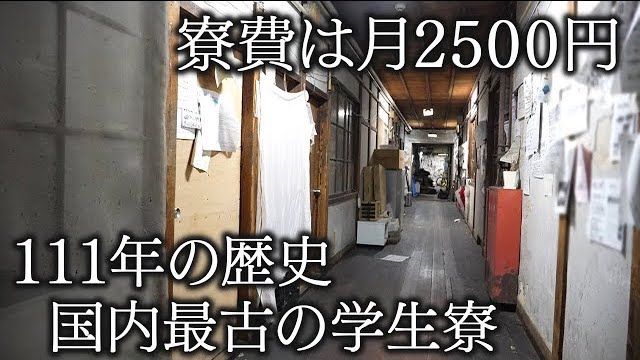When foreigners picture Japan, they often resort to traditional imagery; geisha girls, samurai, and Buddhist temples surrounded by trees.
While visitors to this fascinating country will certainly find all these things, anyone targeting the metropolitan centres of Tokyo, Yokohama and Osaka, amongst many others, will find themselves in a neon wonderland of skyscrapers and cutting-edge technology. It’s easy to forget that under the sheen of tourism, millions of people call these cities home. A small glimpse into their world can be found in one of Japan’s 10,000 pachinko parlours, where an estimated 10 million Japanese citizens are regular players.
Pachinko arrived in Japan along with Korean immigrants in the first half of the twentieth century. Barred from employment by the exclusionist government of the time, the Koreans had little choice but to set up their own businesses. While some entered the competitive food and building industries, many others turned to gaming for their source of income. The first pachinko parlour opened in Nagoya in 1948 and brought the parlour game to the masses. Now updated for the 21st century with digital machines sporting the latest technology, at its peak in the 1990s there were over 300,000 people working in the industry.
A deceptively simple game, Pachinko is a mix of a traditional pinball game, the French game bagatelle, and a modern slot machine. Putting your money in the slot releases a tray of small, silver balls. Turn a large knob to adjust the speed at which these are released and then watch as they cascade down a vertical pin board towards a small central hole, big enough for only one ball to fit through. The majority of them will miss, but when one does hit the target, the fun really begins. Every ball through the hole earns you a spin of the computerised slots, just like it would in a normal slot game. Get three symbols to match and you can trigger jackpot mode, where doors in the board open, allowing more balls to fall through. Every ball that drops into your tray has a value; at the end of your game you collect them all up and trade them for your prize.
Which is not as simple as it sounds. Japan has always been very strict on gambling, banning all forms except betting on certain sporting events. Pachinko has found a way to let its customers gamble by operating in a grey area outside the laws. Technically, what you win from the game are silver balls. But these can be traded for prizes or cash, just not inside the pachinko halls themselves. Back when the game first started, these trades were done in back alleys with not-entirely-legitimate businessmen. Now there are special kiosks located near to the parlours where the exchanges can take place. So far, Japanese authorities have chosen to turn a blind eye to this blurring of the lines, but with casino gambling finally legalised at the end of 2016, will pachinko be moving into casinos and finally inside the law?
With numbers declining steadily over the last decade, it might be time for the industry to update. In 2017, over 400 pachinko parlours closed their doors for good. Pachinko machines employ the latest in gaming technology, but very little else about the businesses make use of the vast technological advances that have been made since 1948. And there are already worries about the levels of gambling addiction among the population, with the government putting measures in place to limit people’s access to casinos before they have even been built. While the western world is just waking up to the importance of promoting responsible gambling, Japan are integrating it into their system from the start.
With casino gambling legalised, but casino buildings not expected to be ready to open in Japan until 2020, there is a huge gap in the market that could be filled in a relatively simple way – online gambling. In western countries, the online casino market is taxed and regulated in the same way as physical casinos and it has been steadily growing year on year. Last financial year the United Kingdom’s remote gambling sector recorded a yield of £5.4 billion, a 13.7% increase on the previous year. £2 billion of that was from online slot machine, an increase of 19.3% on the previous year. In that same time period, the number of betting shops and bingo halls has fallen, proving that the future of gambling really is online.
So what about Japan? With its similarity to existing online slot games, pachinko seems like an obvious contender for a move online. Pachinko halls are overcrowded, noisy and smoky. Competition for machines is high, with people not wanting to move from a machine in case someone takes over and wins ‘their’ jackpot. While for some, this is all part of the atmosphere and appeal, others would welcome the ability to play their favourite game in the more comfortable surroundings of their own home. It would also widen the game’s appeal even further as it could reach those who do not live somewhere with a pachinko parlour. With much of our modern smartphone and tablet technology originating from Japan, it seems crazy that they are not taking advantage of their own products.
There is also a darker side to pachinko, hinted at earlier in this article, which could be solved by a move online. Because the industry is controlled by Korean business interests, and operates outside of Japanese gambling laws, it is run as a cash business, outside taxation. Many Koreans who migrated to Japan retain family ties back home, with an estimated 30% of these in North Korea. At the industry’s peak, these business owners sent hundreds of millions of dollars a year back home.
For North Korea, that’s a significant sum. With many countries concerned over recent happenings in North Korea, it is understandable why Japan’s government is keen to do something to halt the flow of money across its borders. And moving pachinko online, away from the parlours and the back alley deals, would legitimise the flow of money and take control of one of the country’s largest industries – one that pulls in more money each year than Las Vegas! It would also enable them to implement the same responsible gambling rules they have planned for physical casinos and start to deal with the unspoken gaming addiction that has become a problem for so many individuals. Once again, it looks like a possible future for Japan’s economy, lies in technology.










